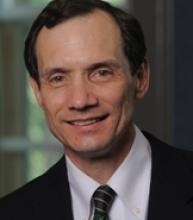Dr. Michael J. Lenardo, M.D. | |
|---|---|
 | |
| Personal details | |
| Born | December 1, 1955 Chicago, Illinois, U.S. |
| Education | Johns Hopkins University (BA) Washington University School of Medicine (MD) |
| Awards | Irish Society of Immunology Award American Association of Immunologists Steinman Award for Human Immunology Research |
| Scientific career | |
| Fields | Molecular immunology Molecular genetics |
| Institutions | |
Michael J. Lenardo, M.D. is an American molecular immunologist and geneticist and is the chief scientific officer of Calico Life Sciences. [1] Previously, he was the chief of the Molecular Development and Immune System Section and the founder and co-director of the Clinical Genomics Program at the National Institute of Allergy and Infectious Disease (NIAID), National Institutes of Health (NIH). [2] Trained as a geneticist, molecular biologist, and immunologist, his research examines how cells of the immune system defend themselves against various pathogens, including viruses and bacteria. [3] His research has investigated genetic abnormalities in the immune system, mechanisms of cell death, genetic diseases of immune homeostasis and autoimmunity, and development of novel diagnostics and therapeutics for diseases of the immune system. [2] [3] [4] Lenardo's contributions to science and medicine have shown the possibilities of genomic research in developing precision medicine diagnoses and treatments for disease in humans. [5] In 2006 he was appointed Officer of the Most Excellent Order of the British Empire (O.B.E.) by Queen Elizabeth II. [2] In 2019 he was inducted into the National Academies of Sciences and the National Academy of Medicine, considered among the highest honors awarded to a U.S scientist and medical researcher respectively. [2]